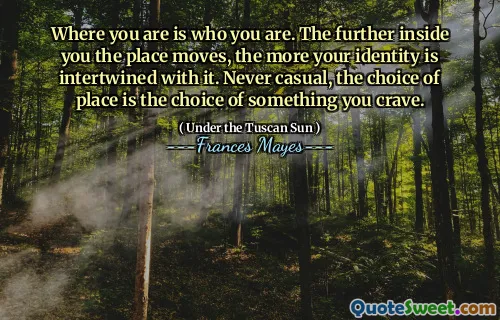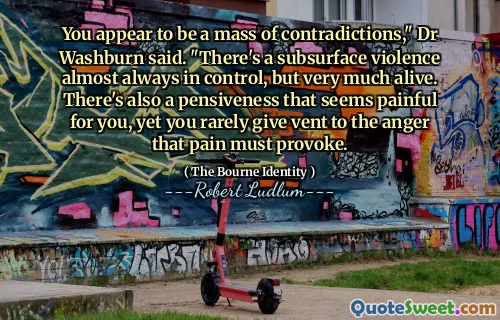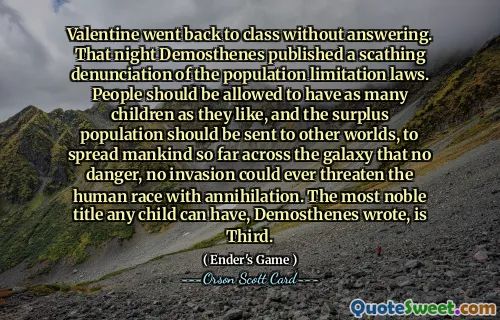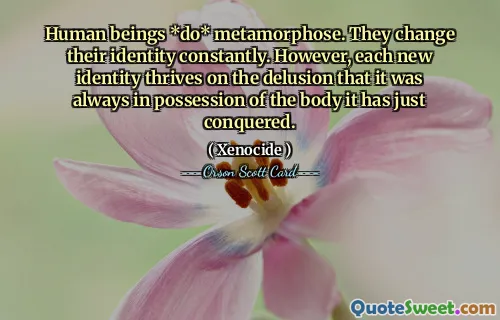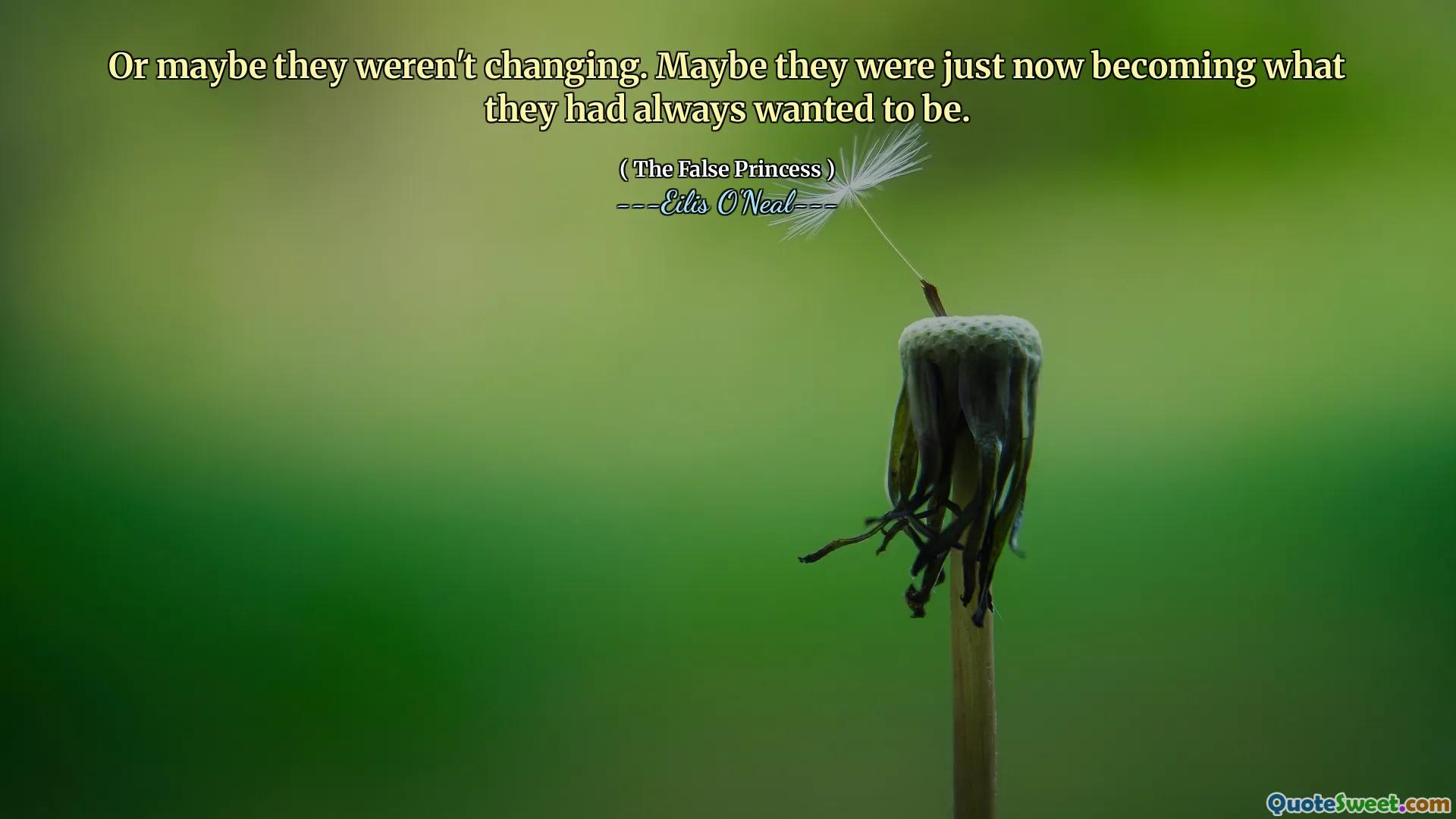
Or maybe they weren't changing. Maybe they were just now becoming what they had always wanted to be.
This quote touches on the profound idea of identity and transformation, urging us to reconsider the nature of change itself. It suggests that what we often perceive as change might not be altering our core selves but rather realizing an authentic version of who we truly are. This perspective can be liberating because it reframes the sometimes uncomfortable experience of change as an uncovering rather than a loss or distortion. Instead of a departure from our former self, the process of 'becoming' here is depicted as a long-awaited journey towards authenticity. It is a reminder that our desires and aspirations are intrinsic parts of us, perhaps dormant for a time but always present.
Reflecting on this, it's clear that this idea encourages patience and self-compassion. Often we struggle because we compare our current state to our past or an ideal future, interpreting the transformation as inconsistency or failure. Yet, if transformation is about aligning more closely with our true selves, every step forward should be seen as fulfilling potential rather than abandoning it. This idea also fosters a mindset where change is not feared but embraced as a sign of personal growth and deeper self-realization.
In the context of Eilis O'Neal's "The False Princess," this thought could resonate with the struggles of identity and self-acceptance faced by the characters. It underscores the theme that becoming who we have always wanted to be is less about external change and more about affirming internal truths. Ultimately, this quote encourages authenticity, reminding us to honor the inherent desires that shape our personal evolution.


